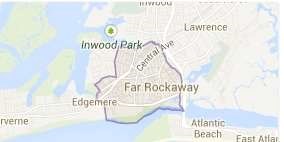
How can you tell whether the on-site property manager at a condominium or homeowners association community is doing a good job? And what is a 'good job' anyway? Whether a manager is well-liked and whether he or she manages well may not be the same thing. How do you distinguish one from the other?
Such questions arise whether an association’s board of directors hires the on-site manager or contracts with a property management firm that employs the on-site manager. The major difference is that management firms assume responsibility for periodic performance reviews of on-site managers, although some firms involve their clients in the review process.
If your board hires the manager directly, resources exist to help ensure that your performance-review process is fair and accurately measures his or her performance.
Performance Review Consultants
For a fee, your association can tap into the resources of a consulting firm that will provide forms you can use or adapt, and manage the paperwork and record-keeping. One such vendor is ADP TotalSource, a subsidiary of payroll-processing firm ADP (Automatic Data Processing, Inc.) that provides human-resources services and benefits programs.
To find other vendors, Google the search terms “performance appraisal consultants” and “performance review consultants”—but expect that many of the firms listed are likely targeting clients much larger than your association. Your board’s attorney may be able to offer a referral, and networking at Community Associations Institute (CAI) and Institute of Real Estate Management (IREM) events also may help you find suitable consulting firms.
Helpful Publications
IREM offers three performance-review publications free to members. Others pay a nominal fee.
• An 11-page Job Performance Evaluation ($12.95) “enables the reviewer and individual to assess and document the degree to which the individual has accomplished specified objectives from the previous review. The evaluation includes descriptions of performance ratings and key areas in which the individual is assessed.”
• Select List of Recommended Performance Measures ($5.95) is a form you can customize to set an employee’s “performance goals and expectations.”
• Annual Performance Scorecard ($3.95), also customizable, is “an organized set of performance measures, grouped according to various aspects of performance.”
Winging It
If you’re going to write your own form, first stir your creative juices by collecting some samples of forms created by others. Google the search term “performance review forms” to access forms from such diverse sources as Employee Performance Solutions, Inc. magazine, Massachusetts Institute of Technology, and Microsoft Office.
Then your entire board should conduct a workshop to discuss what performance-review criteria belong on your association’s form.
Michael Berenson, president of AKAM Living Services Inc. in New York City whose company manages properties in Fort Lee, believes that communication should top the list. “It’s extremely important to communicate on a regular basis with clients through email or direct contact,” says Berenson. “Our managers communicate a minimum of two to three times a week with the client. We send them a detailed action list on a weekly basis that gives them an update on everything that’s going on in their building.”
Joseph Balzamo, president of Alliance Property Management LLC in Morristown, said that his company does both an internal evaluation and externally receives feedback from the client on an individual manager’s performance. The manager is judged on five criteria: their customer service effectiveness, being aware of the property, keeping track of the community’s financials, their meeting preparation and their ability to bid effectively for vendors and successfully complete maintenance and capital improvement projects.
Another crucial skillset is communication and responsiveness, he says. A good manager must have the wherewithal to respond to requests and handle situations in a timely manner, Balzamo says. He brings up the recent problems wrought by Hurricane Sandy. There was a significant amount of their buildings that needed immediate attention because they were damaged by the storm. This involved a more hands-on approach by the company’s individual managers, according to Balzamo, to get things back on track quickly. “It’s not the time that you want to be calling through a phone book,” to get property repairs done, he says.
Barry Manson, vice president of ABM Management Corp. in Great Neck who has managed buildings in New Jersey agrees with Balzamo about the importance of communication. “Communication is one of the most important things for a property manager,” he says. “We have a requirement of a 24-hour turn around time for phone calls. You must keep the lines of communication open.”
“Communication is by far, the most important thing,” concurs James Cervelli, of Cervelli Management in North Bergen, “You have to communicate with the client about everything, what’s happening around their building, construction projects, and the list is endless. The client is running the show so it’s important that a property manager communicates with them and keeps them up to date.”
Assessing Property Managers
At any job, be it running a multinational investing firm of flipping burgers at a chain restaurant, employees are given periodic reviews of their performance to assess how they’re doing, what their strengths are, and what areas need improvement. Property management companies do the same thing with their employees.
“Our managers are given certain types of reports they have to do on a regular basis,” says Berenson. “They have to do a monthly walk through report and they have to give it to the client and to their supervisor. They also have to do a detailed, comprehensive action list. It’s a to-do list of all the items they are working on with a status report and it goes to our client and to their supervisor. Those are two ways we make sure that our property managers are doing their job. It’s also important for upper management to follow up to make sure that they are working on these things for the client.”
“I rely on the feedback from the boards and unit owners in co-ops and condos,” adds Manson. “The messages that we get are extremely telling. We get messages in regards to the agent returning phone calls and emails, what they are doing and what they are not doing but should be.”
It’s also key that a manager understand what they are managing, Balzamo says. The manager must be “property-aware,” or in other words, have a keen understanding of the property’s infrastructure and its operations, whether it’s a 20-story high-rise or hundreds of sprawling townhomes.
Assessing On Your Own
What are the traits of a good property manager? “The best trait to start with is that they are customer-service oriented,” says Balzamo. “After all, this is a customer service business.” The next thing to look at, he says, is their responsiveness. Every person should at least get a phone call back. The third quality is that the person should be hands-on, he adds.
If a building or association board wanted to do an annual or semi-annual assessment of their individual manager’s performances on their own certain criteria should be included.
“It’s important for a building to look at how responsive he or she is to their particular needs and how responsive they are,” says Manson. “Other things to look at are how quickly are phone calls returned and is the building kept clean?”
“One way for a building to assess their property managers would be to survey their residents or shareholders,” adds Berenson, “A few questions to include would be responsiveness of the property manager, cleanliness of the building and performance of the staff.”
Red Flags
There are red flags that might indicate that a managing agent isn’t fulfilling their obligation to a building but it’s important to boards and associations to know what they are.
Experts agree the if reoccurring issues keep cropping up at board meetings it means that someone is not executing if the same business keeps cropping up.
“From our perspective, we know there is trouble with a building if we get lots of phone calls from shareholders and unit owners,” says Manson, “From the unit owner perspective expect problems if your phone calls and emails are not answered in a timely manner.”
“If you are on a co-op or condo board and you are getting numerous complaints from residents, that’s an obvious red flag that your property manager is not doing a good job,” says Cervelli. “Also, if you have to call your property manager more than once about a building issue that’s not a good sign.”
When Balzamo, whose company manages about 30 properties, gets a new client, he says, there are two areas of concern often mentioned. The number one complaint he gets upon taking over is that the new client says they never saw the previous property manager, and secondly, they grouse that they also never heard from the manager or received any followup or call-backs.
“If property managers are not visiting the building, that’s a big red flag. I can tell if they are not visiting the building if they are not submitting their walk-through reports, the building report says that they’ve been there a couple of times a week,” says Berenson. “If property managers are not going to the building visiting to check on alterations and working capital projects that’s another red flag. And if they are not getting timely detailed, financial reports that includes the bank reconciliation and copies of paid bills, that’s another sign of potential problems.”
Experts agree that in the end it’s all about what should be done for the greater good of the property and then executing and getting the job done.
George Leposky is a freelance writer and is a frequent contributor to The New Jersey Cooperator. Additional reporting by Staff Writer Christy Smith-Sloman.






Comments
Leave a Comment